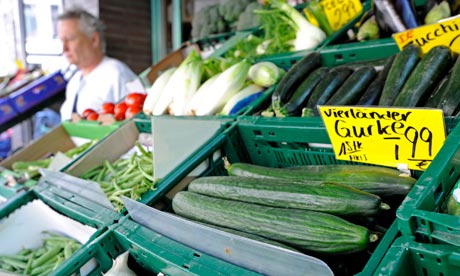
The vegetables suspected to be at the centre of the E coli outbreak are cucumbers, lettuce and tomatoes: all parts of a healthy diet. Ironically, this may also explain why young women seem to be disproportionately affected by the bug.
In the vast majority of outbreaks, most victims are the elderly or children, whose immune systems may be either weak or underdeveloped. But in the case of the German E coli strain, around three-quarters of the 1,800 infections and at least 13 of the 19 who have died so far have been adult women.
Experts are unclear why. Bob Adak, head of the UK Health Protection Agency's food section, said: "We can't say with complete certainty why women have been disproportionately affected, but in previous outbreaks around the world associated with salad vegetables we have seen women and adults more severely affected than men and children, so it's possible that this could be an indicator of food preference."
The idea that the preponderance of women could simply be the result of generally better diets among young women was supported by Stephen Smith, a clinical microbiologist at Trinity College, Dublin. He speculated that "it may be reflective of their healthier lifestyle - ie consuming more salad vegetables."
Another possibility is that the specific strain spreading from Germany finds something about women's guts more hospitable. This selective phenomenon would not be unprecedented since many bugs disproportionately affect people from different races or who come from particular geographical regions.

